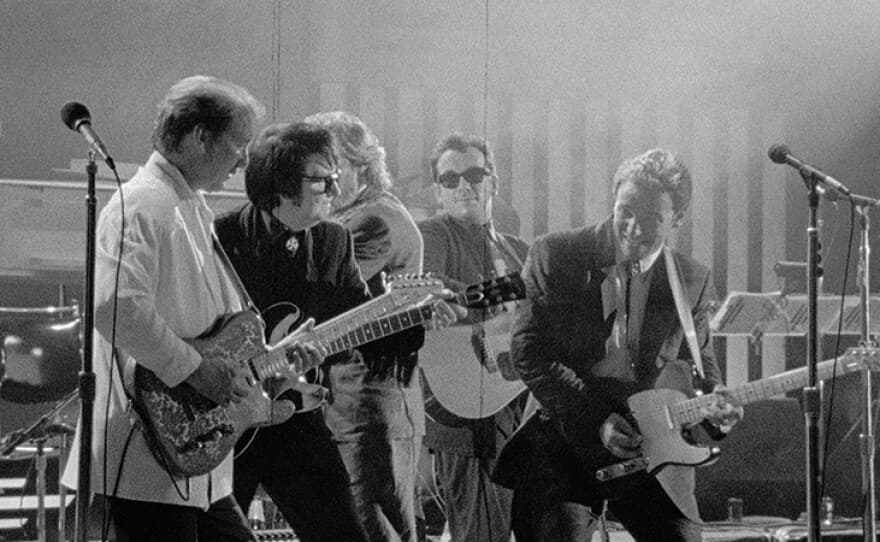
A timeless anthem of desire reborn in the glow of a late-career renaissance.
When Roy Orbison stepped onto the stage for Black & White Night 30, he wasn’t merely revisiting an old triumph—he was reclaiming a legacy. Originally released in 1964 and later included on the compilation Orbisongs, “Oh, Pretty Woman” became one of Orbison’s most enduring achievements, soaring to No. 1 on the Billboard Hot 100 and cementing his place among the defining voices of early rock and roll. On this restored and remastered concert—a 30th-anniversary edition of the famed 1987 all-star performance—Orbison revives the song with a maturity that deepens rather than diminishes its electric charm.
If the studio version immortalized the swagger of youthful infatuation, the Black & White Night performance reframes the song through the lens of experience. Orbison, then in his early fifties, commands the stage with a quiet assurance, his trademark dark glasses glinting under the spotlights as the opening guitar riff slices through the room. This was a moment suspended in time: a legendary voice surrounded by luminaries—Springsteen, Costello, k.d. lang, Tom Waits—yet standing utterly, unmistakably alone. The context of this performance imbues “Oh, Pretty Woman” with a renewed emotional charge, transforming what was once a vibrant pop hit into a celebration of endurance, craft, and artistic resurrection.
Lyrically, the song remains deceptively simple, built on the universal spark of seeing someone who momentarily rearranges the world around you. Orbison’s writing balances longing with playful confidence, shifting from admiration to hope to quiet vulnerability. In the live rendition, these nuances bloom. His voice—clear, soaring, impossibly controlled—lends gravity to lines that once felt buoyant. Where a younger Orbison delivered the words with bright, flirtatious energy, this performance introduces a subtle ache beneath the charm. Time has weathered the singer, but not the song; instead, it allows new layers to emerge, reminding listeners that desire does not fade—it evolves.
The arrangement on Black & White Night 30 is lush yet precise. The interplay of guitars gives the iconic riff a renewed crispness, while the backing vocals wrap Orbison in a halo of warmth. There is a cinematic sweep to this version, an echo of the grand emotional landscapes that defined his career. The rhythm section adds a pulse both nostalgic and immediate, grounding the performance in rock-and-roll tradition while pointing to its timelessness. Every instrument seems to bow, gently, to the voice at the center—a voice capable of turning a simple walk down the street into a moment of myth.
What emerges from this performance is not merely a reprise of a classic, but a reassertion of Roy Orbison’s singular artistry. “Oh, Pretty Woman” in Black & White Night 30 is a testament to a musician who understood that great songs do not age—they reveal new truths as their singer grows older. Through this lens, the familiar anthem becomes something richer: a bridge between past and present, between innocence and wisdom, between fleeting attraction and the enduring power of longing. In the hands of Orbison, it remains not just a hit, but a heartbeat—steady, irresistible, and forever reaching out into the dark.